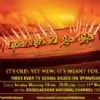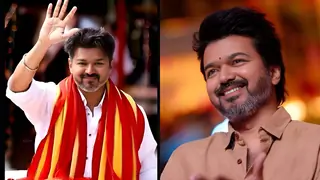Originally posted by: shubsmayur
@ cherry- Thanks a lot for sharing 😊, well i didn't know about it and not watched the soordas episode yet, and who says it that the male child is only needed to do all the karmkand, few days back i was hearing Shri Shri Ravishankar ji he also said "our Upanishads are not biased, those people who thinks that women have no right to do the last rituals of their parents is also wrong, they have all the rights" and people think that if they have son than only they will get the moksha, is also the wrong interpretation, any one will get liberated only because of his own pious karmas not because if they have son(IN Bhagwat Mahapuran their was a katha of Evil Son Dhundkari,which tolds the story of a Man who have desire for son but when his son grownup, he becomes the evil and also misbehave with his parents and becoz of his behaviour that man got hurt and went to the saint, and then the saint suggest him to do the Bhakti of Lord than only he will get peace and attain Moksha) our society is driven by people with there male centric ego, all this contamination comes after the vedic age only, the differentiation on the basis of casteism is another one of the example of it.


























1k